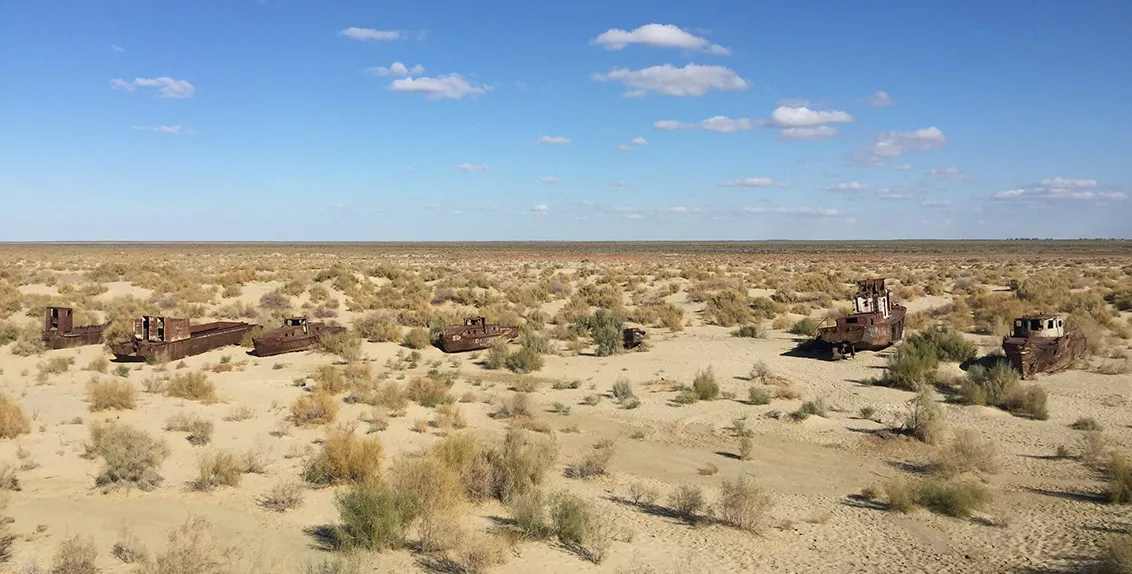Developing capacities for sustainable development in Aral Sea region
10 November 2020
The shrinking of the Aral Sea is considered as one of the worst man-made environmental disasters. Once the world's fourth largest lake, it has been reduced to roughly a tenth of its original size in the 1960s.
Today the dried seabed is a salt-covered desert, heavily contaminated with pesticides and herbicides – a legacy of decades-long cotton cultivation.
The consequences go far beyond the environment, affecting the lives and livelihoods of millions of people in the Aral Sea region. They range from salt and dust storms, loss of biological productivity and biodiversity, deterioration of ecosystems, water supply and health risks, food and nutrition insecurity, economic losses to climate change.
The Aral Sea basin is a diverse region shared by several Central Asian countries, including Uzbekistan. The countries are taking various measures to mitigate the challenges posed by the dried seabed.
Uzbekistan, for example, has been mobilizing regional and international support to resolve the socioeconomic and environmental problems through scientific and innovative solutions.
To this end, the government established a dedicated international research center in 2018. The Islamic Development Bank (IsDB) and the International Center for Biosaline Agriculture (ICBA) supported this initiative from the outset and provided technical assistance in operationalizing the International Innovation Center for the Aral Sea Basin (IICAS). Being a strategic partner of the IICAS, ICBA also trained six senior specialists from the IICAS in 2019.
Through research and innovation, the IICAS aims to address, among other things, the risks from soil and water salinity, water scarcity, and climate change in the Aral Sea region.
The center also focuses on developing the capacities of local stakeholders in different fields from climate-smart agriculture to sustainable natural resources management.
In collaboration with ICBA, the center recently organized three scientific and practical workshops in Karakalpakstan (an autonomous republic within Uzbekistan). The workshops brought together more than 160 participants, including farmers, scientists, government representatives, and youth. They covered such topics as “Integration of science with production and application of modern technologies in agriculture and water management, adaptation to climate change in the Republic of Karakalpakstan”; innovation and the role of youth in marginalized environments; and “Agricultural production and innovations in marginal conditions: problems and prospects”.
The workshops served to develop participants’ knowledge about sustainable agriculture and climate-smart technologies. Participants also learned about how youth can contribute to technology transfer and sustainable development. They were also briefed about alternative crops like quinoa, which are more adapted to harsh environmental conditions present in the region.
Speaking of ICBA’s collaboration with the IICAS on capacity development, Dr. Aziz Karimov, Head of ICBA’s Regional Office for Central Asia and South Caucasus, said: “We believe such training workshops and seminars provide a platform for sharing new ideas, exchanging information and finding solutions to some of the most pressing issues in agriculture.”
The workshops were jointly organized by the Ministry of Innovative Development of Uzbekistan, the IICAS and ICBA in line with the Strategy for the Development of Agriculture of Uzbekistan for 2020-2030. The strategy specifically highlights the great potential of innovations for addressing current and future challenges in agriculture, particularly in marginal environments such as the Aral Sea region.












